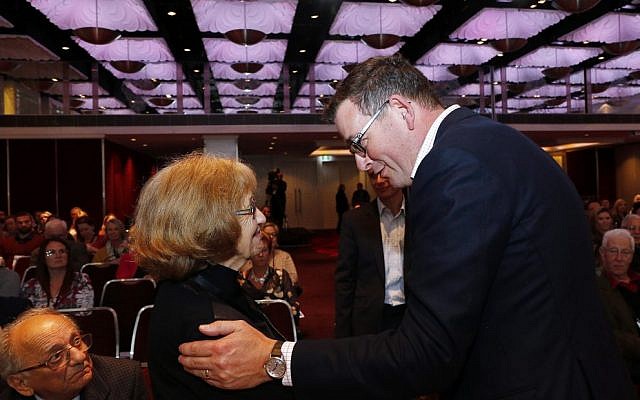Ensuring students are a ‘force for good’
Merlino: 'A much greater emphasis on the teaching of the Holocaust will have a big impact on our students’ understanding of how much damage antisemitic behaviour can cause'.

IMPROVED Holocaust education in Victorian state schools is set to become a reality following an announcement of $150,000 in funding from the Andrews government and Gandel Philanthropy earlier this week.
The grant will see the rollout of a pilot program developed by the Jewish Holocaust Centre focussing on teacher training. It follows on from the government’s pledge in February 2020 for compulsory Holocaust education for all year 9 and 10 state school students after a series of alarming antisemitic bullying incidents.
“Antisemitism is on the rise both abroad and at home – you only have to look to the wicked bigotry we saw in the Grampians last month to see the evidence,” lamented Premier Daniel Andrews.
Education Minister James Merlino said, “A much greater emphasis on the teaching of the Holocaust will have a big impact on our students’ understanding of how much damage antisemitic behaviour can cause.”
The 10-step teachers’ training program involves virtual and face-to-face components, with teacher-participants meeting with a survivor, and hearing their testimony, first hand.
Further, JHC staff will provide a support role, assisting with curriculum review and planning. 150 teaching teams at various government schools will undertake the professional learning program which begins in term two.
Speaking with The AJN, JHC museum director Jayne Josem explained that the pilot project was born when working with the government last year in creating an online Holocaust education resource hub for teachers.
“But out of that, we identified that the missing gap was training,” she said.
“We then spoke to the Department and advocated for upskilling the teachers, because even the best resources in the hands of a teacher who is not knowledgeable about the specificities of the Holocaust is still going to be met with challenge.
“Holocaust education is very nuanced and it needs to be taught safely and appropriately for school students – many of whom are from a variety of backgrounds, some of whom may have experienced their own trauma.”
The program recognises the short and long-term causes and effects of prejudice, discrimination and, ultimately, genocide. It teaches students to become informed and active citizens, protect democracy, and value a diverse and inclusive society.
Josem also praised the plan for engaging school principals in the process, rather than just individual teachers – “because when there is a problem at a school with antisemitism, it is the principal that needs to act”.
Reflecting on “valuable messages” to be gleaned from the Holocaust for today’s young generations, chair of Gandel Philanthropy John Gandel said, “Through proper, deep and effective Holocaust education we can ensure that our young people become a force for good in this world.”

comments